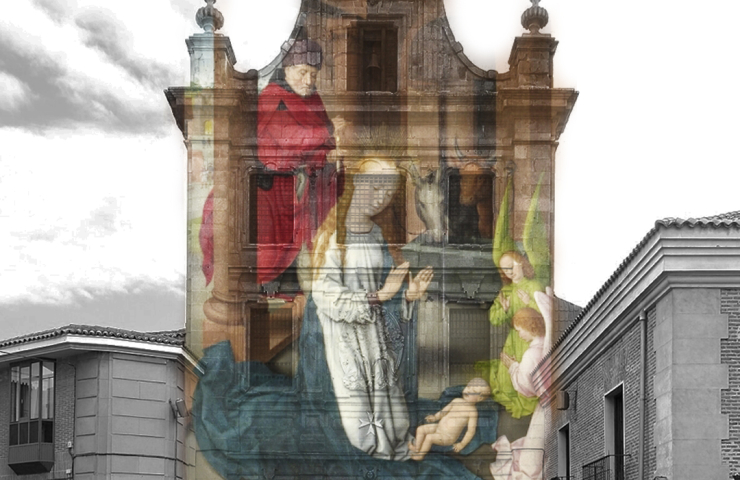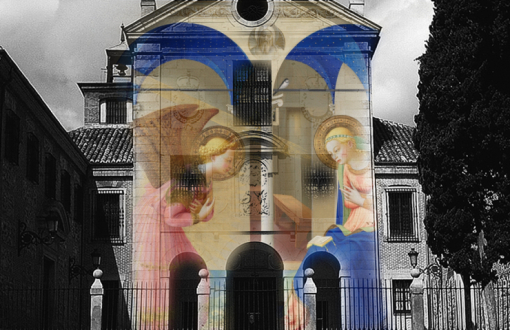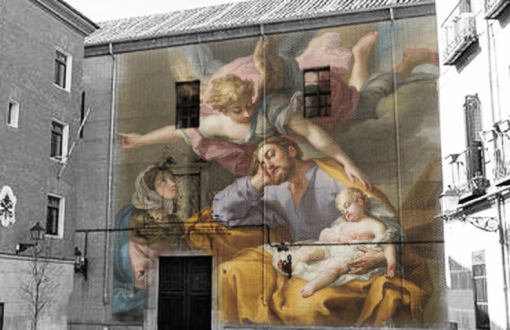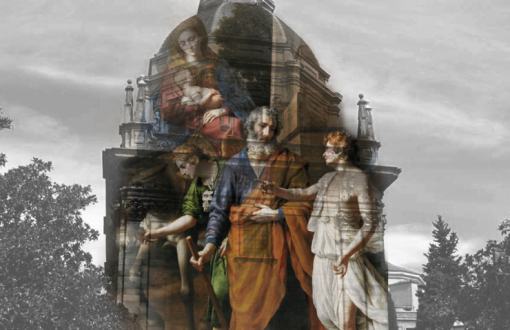2. Iglesia Catedral de las Fuerzas Armadas
Estado del evento
- Estado: Finished
Detalles del evento
-
Thu 19 Dec - Mon 23 Dec 2024
-
Iglesia Catedral de las Fuerzas Armadas
Art direction: Paco Azorín
Design and production: Pedro Chamizo
The Nativity: Triptych of the Adoration of the Magi, Hans Memling
Prado National Museum
Memling’s painting depicts three moments in Jesus’ early childhood. The first panel is The Nativity: the Virgin and two angels adore the Son of God. St Joseph enters the stable with a small candle, alluding to the new light that the birth of the Messiah represents. The centre panel, The Adoration of the Magi, gives its title to the overall work. It shows one of the first representations of a black king in Flemish art. The last panel shows the Purification of Mary and the Presentation of Christ in the temple, fulfilling two commandments of the Law of Moses: the purification of the woman forty days after childbirth and the redemption of the first-born son. The three main characters are the common theme of each scene. The Nativity and The Adoration of the Magi are set in the same stable, changing only the point of view.
Adoration of the Shepherds, Bonifacio Pitati
Prado National Museum
This scene is part of the Nativity cycle. It occurs immediately after the birth of Jesus and the Annunciation to the shepherds. The shepherds go to the Bethlehem stable after receiving the angels’ message of the Messiah’s coming. It is based on the account in Luke’s Gospel, which is not described in any other canonical Gospels. The scene is often presented in contrast to the adoration of the Magi.
Bonifacio de Pitati was a master painter since 1515 and trained with Palma the Elder, whose late style he assimilated. This painting belongs to his first period (1515-28), showing his knowledge of the work of Bellini, Giorgione and Titian. Compositional symmetry and a tripartite landscape treatment are distinctive features of his early work.
The Cathedral Church of the Armed Forces was founded in 1615 by Cristóbal de Sandoval y Rojas, Duke of Uceda. It was designed in the shape of a Latin cross by the architect Juan Gómez de Mora in 1615. Although work began in 1671, it was not completed until 1744. The church naves are decorated with abundant Italian-style frescoes by Luis, Antonio and Alejandro Velázquez. As well as Gómez de Mora, the architects Francisco Bautista, Manuel del Olmo and Bartolomé Hurtado García (the main director of the work) were also involved. The interior decoration was done by Andrés Esteban in 1744, and the granite façade was built by Pedro de Ribera.
In partnership with:

Categories
Estado del evento
- Estado: Finished
Detalles del evento
-
Thu 19 Dec - Mon 23 Dec 2024
-
Iglesia Catedral de las Fuerzas Armadas
Accessibility type
Details:
- Telephone: 915 473 624
- https://www.arzobispadocastrense.com
Directions:
- Metro: Ópera (Líneas 2, 5 y Ramal).
- Bus: 148, 3, SE712, 31, 50, 65.
- Bicimad: Estaciones 166 (calle Segovia, 26), 35 (plaza del Cordón, 1), 36 (plaza de Ramales), 9 (plaza de San Miguel, 9), 24 (calle Carlos III, 1).
Centro
Open this map:



